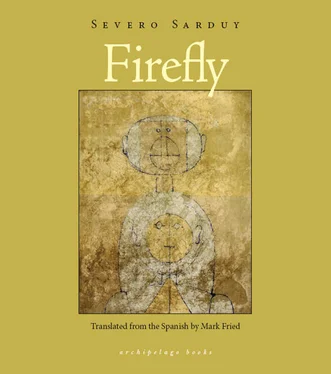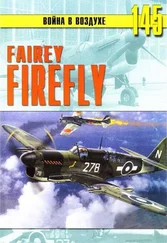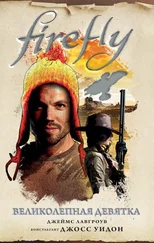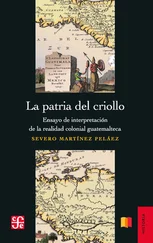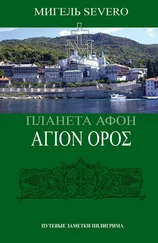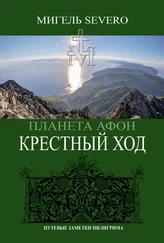Suddenly he was shaken by an absurd hunch, the very possibility of which was enough to disconcert him: Could this be the charity-house chapel that was always closed up, except when a young priest aired it out between Easter and Saint John’s Day, and he had arrived by another entrance? *
He understood then, in a way as inescapable and true as death, that he lacked something inherent to life, something so obvious that others did not even know they had it: a sense of direction.
At a fork in the road he had no idea what to do, just as he had no idea what to do when faced with the ritual — no doubt second nature to others — of sex.
He sensed in an opaque way, as if he had received an unspoken but fatal warning, that he would always be lost, disoriented, lacking an interior compass, as if the entire Earth were a laborious labyrinth or a perverse mirage of movable walls someone had contrived just to get him lost, to bring him down.
A grizzled and toothless old woman in rags distributed with careful disequilibrium, like she had been dressed to play a leprous beggar in a sacramental rite, came noiselessly toward him. Hanging by its feet from her right hand was a dead canary, which she set down delicately, perhaps afraid she might harm it, next to a little basket.
“Madam,” Firefly addressed her, his voice quavering, fearing maybe he might spoil the offering of the bird.
“What?” the mendicant in disguise answered grudgingly, smoothing her matted yellowish-white mane and breathing deeply, as if offended by an unpardonably foul remark or a flouting of the most common courtesy.
“What chapel is this?” Firefly chanced, like someone who dares to utter a blasphemy or a provocation.
“The chapel of the Virgin, can’t you see?”
“But. ”
“But what?”
“Those monks. ”
“They’re singing, can’t you see?” and she turned her back, annoyed by what she considered morbid ridicule or pretend curiosity.
Then he was forced to realize further, from this very evidence, that he would never have anyone to orient him, that for others his deficiency was like a vice, deliberate and embraced with malicious delight, that ought to be outlawed and exterminated.
He felt blindfolded and alone at the center of a grotesque, cackling circle spinning around him. People delighted in his being lost, the way his aunts had delighted at his defecation.
His body, the laws of his body, gave people the urge to laugh.
The canticles faded away.
But the dull hum of the vowels from the invocation remained hanging in the air like a vocal residue: reversed and inaudible, yet precise.
And now, after a pause in which they were still and silent, the monks, like brothers after a separation, like blood relatives after a long absence, hugged and kissed one another, celebrating a ritual reunion, a holy day, or a resurrection.
Visible through the windows, and at the same time reflected in them, were the monks’ scrawny bodies: white robes, knotted ropes, crude wooden crosses. The starry indigo sky of the chapel met the reflection of the lawn’s burned greenery and the precarious squirt of water. A very fine line, broken and red, marked the border between them.
Superimposed on those reflections, Firefly now saw senseless images whipping by, the way it is supposed to happen seconds before death. Swollen, splintered, warped, colors and shapes morphing, one image becoming another, turning monstrous, distorted, helix-like, gilded: in the foreground, occupying the entire windowpane, a gloved hand with ringed fingers spread wide pulling down the coins. in the background, fragile and fleeting minutiae, mosaics viewed underwater, dots and streaks (the hookers’ rigid, black-dyed kiss-curls). the notary’s drawer that opened with a yank. a gleaming light swinging and spinning before his eyes (the pendulum). Ada’s perfume. a target. the wrinkled face of an old woman like doodles in beeswax. the taste of crème de vie . a hand on his sex, large and pink like gum. the chamber pot sliding down the cistern.
“What they call writing,” he then said to himself, “must be just that: to be able to make some order out of things and their reflections.”
One by one, the monks genuflected before the altar, crossed themselves, and began to leave.
“If I could write,” he continued, “I could make things appear and disappear as they really are instead of the jumbled way they look in the window, all mixed up with their reflections.”
The chapel was empty. Still he dared not step in. An intensity, an invisible texture in the air held him back. To enter would be to violate the memory the room held of the silence and, earlier, of the meditations and voices.
He remembered that he still had the stolen notebook and pencil in his pocket. He pulled them out and on the first page drew a few shapeless scribbles, grotesque ideograms, which he aligned vertically. Then he erased them and replaced them with others equally inept. God knows what they might be. But for him the meaning was utterly clear:
Poem
from
Plaza
del
Vapor
*Have you ever heard of bibliomancy? It’s a form of divination that one can turn to only a few times in life if it is to “work,” and that consists of opening the Bible at random and pointing to a line without looking at the page.
I have done it twice in my lifetime, at moments of great need. The first came up Matthew 2:12 (The Flight into Egypt): “And being warned of God in a dream that they should not return to Herod, they departed into their own country another way.”
This is a call to seers: What was Saint Matthew trying to tell me?
Fresh salt air, reeking of the sea. The purplish-blue shadows of things seemed to swirl around him, as if a crazed moon were spinning about the sky. Or maybe what had changed was his own body, inhabited now by somebody else.
Down the shining cobblestone street came a skeletal black calash driver with chiseled cheekbones, at this hour already dressed in his vest and bowler hat. He stepped lightly, almost weightlessly, practically floating over the paving stones. With his right arm he pushed a loose cartwheel; in his free hand he carried a whip. The wheel bounced on the stones, wobbled, continued downhill.
When the coachman passed Firefly, he gave him a surprised look, as if he recognized him and wondered what he was doing out there at that time of day.
Cautiously, at a distance, like an affectionate and obliging mother, someone was following the driver.
Firefly first recognized the starched white housedress, which ruffled open in the humid morning breeze like an immense day lily; then, shining just as white, the necklaces, small friendly sea-shells whose rattling he thought he could discern; and finally, the bright silk turban: the black Santeria priestess had found him again.
In her hands she carried a lantern, its light extinguished, its glass stained from smoke, as if she had been using it all night long on her travels.
“You are going to discover something beside the water,” the mother of saints told him at once. Her voice was that of a woman who had just swallowed a sip of honey.
“How do you know?”
The priestess rattled her necklaces. “And what’s more,” she added smiling, “it’ll happen soon. You’ll never go back home after seeing what you are about to see.”
She half turned on her heels, like someone finishing a dance or jubilant at having completed a mission. She raised her hand and called to the coachman. Firefly understood neither the name she called out nor the language she spoke.
They greeted each other with a salutation Firefly had never seen: mother’s right shoulder touched the driver’s left, then they repeated the same gesture in reverse.
Читать дальше
